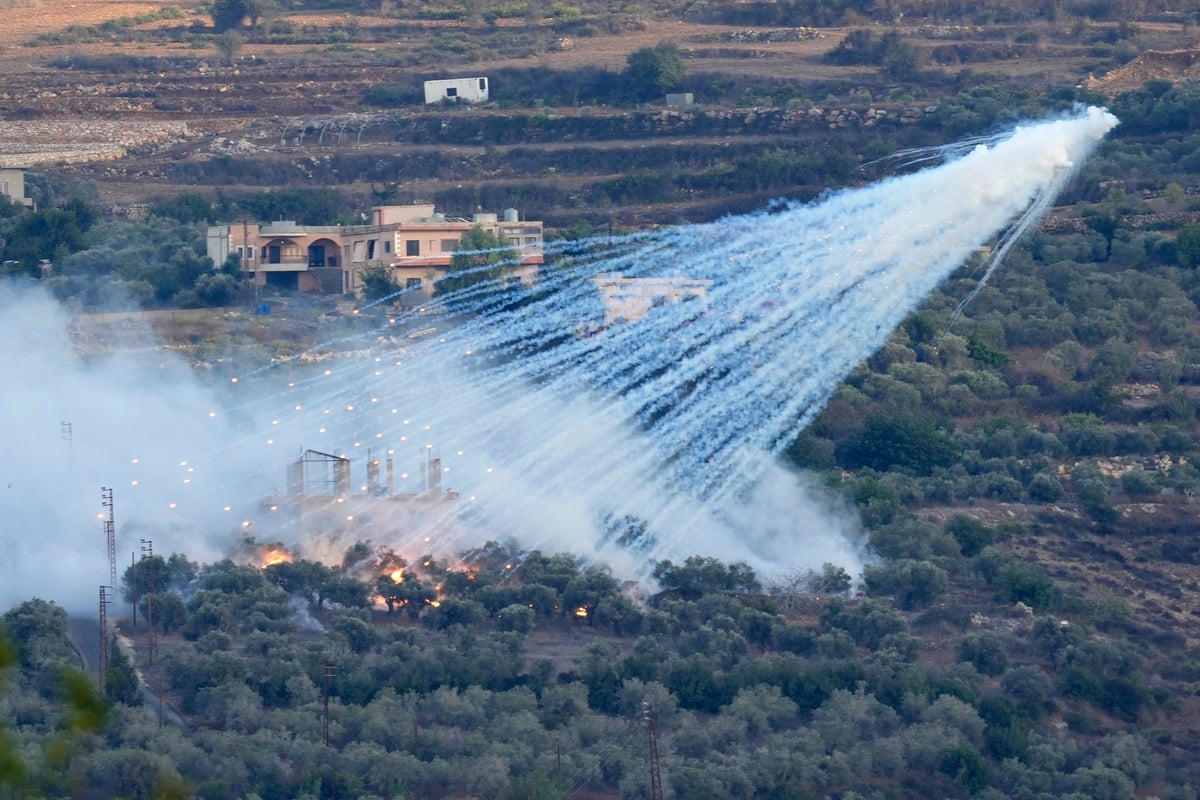
The human rights group Amnesty International said Tuesday that civilians in southern Lebanon were injured this month when Israeli forces hit a border village with shells containing white phosphorus, a controversial incendiary munition.
The organization said it verified three other instances of Israel's military dropping white phosphorus on Lebanese border areas in the past month, but Amnesty said it did not document any harm to civilians in those cases.
Human rights advocates say the use of white phosphorus is illegal under international law when the white-hot chemical substance is fired into populated areas. It can set buildings on fire and burn human flesh down to the bone. Survivors are at risk of infections and organ or respiratory failure, even if their burns are small.
After an Oct. 16 Israeli strike in the town of Duhaira, houses and cars caught fire and nine civilians were rushed to the hospital with breathing problems from the fumes, Amnesty said. The group said it had verified photos that showed white phosphorus shells lined up next to Israeli artillery near the tense Lebanon-Israel border.
The organization described the incident as an “indiscriminate attack” that harmed civilians and should be “investigated as a war crime."
A paramedic shared photos with the The Associated Press of first responders in oxygen masks and helping an elderly man, his face covered with a shirt, out of a burning house and into an ambulance.
“This is the first time we’ve seen white phosphorus used on areas with civilians in such large amounts,” Ali Noureddine, a paramedic who was among the responding emergency workers, said. “Even our guys needed oxygen masks after saving them.”
The Amnesty report is the latest in a series of allegations by human rights groups that Israeli forces have dropped shells containing white phosphorus on densely populated residential areas in Gaza and Lebanon during the ongoing Israel-Hamas war.
Israel maintains it uses the incendiaries only as a smokescreen and not to target civilians.
The Israeli military said in a statement to the AP earlier this month that the main type of smokescreen shells it uses “do not contain white phosphorous.” But it did not rule out its use in some situations. The military did not immediately respond to inquiries about Tuesday's Amnesty statement.
The rights group said it also verified cases of white phosphorus shelling on the border town of Aita al Shaab and over open land close to the village of al-Mari. It said the shelling caused wildfires. The United Nations’ peacekeeping mission in Lebanon, UNIFI, was called in to help with firefighting efforts as local firefighters couldn’t go near the front lines, a spokesperson for the mission told the AP.
Amnesty and Human Rights Watch have also reported an alleged case of white phosphorus shelling in a populated area of the Gaza Strip during the current Israel-Hamas war but have not verified civilian injuries from it.
Doctors working in hospitals in the besieged Palestinian territory told the AP they saw patients with burn wounds they thought were caused by white phosphorus but they did not have the capacity to test for it.
In 2013, the Israeli military said it would stop using white phosphorus in populated areas in Gaza, except in narrow circumstances that it did not reveal publicly. The decision came in response to an Israeli High Court of Justice petition about use of the munitions.
The military disclosed the two exceptions only to the court, and did not mark an official change in policy.







